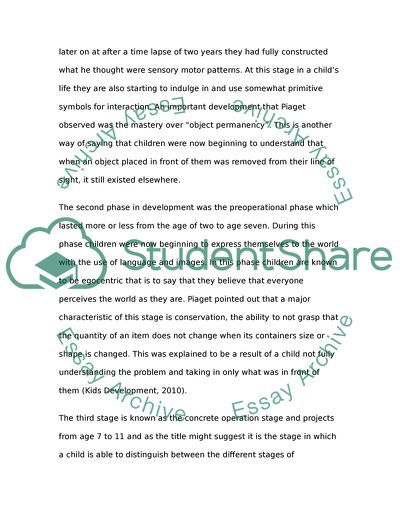Cite this document
(Cognitive Theories of Piaget and Bandura's Social Cognitive Theory Essay Example | Topics and Well Written Essays - 1250 words, n.d.)
Cognitive Theories of Piaget and Bandura's Social Cognitive Theory Essay Example | Topics and Well Written Essays - 1250 words. https://studentshare.org/social-science/1737319-compare-and-contrast-cognitive-theories-of-piaget-and-banduras-social-cognitive-theory
Cognitive Theories of Piaget and Bandura's Social Cognitive Theory Essay Example | Topics and Well Written Essays - 1250 words. https://studentshare.org/social-science/1737319-compare-and-contrast-cognitive-theories-of-piaget-and-banduras-social-cognitive-theory
(Cognitive Theories of Piaget and Bandura'S Social Cognitive Theory Essay Example | Topics and Well Written Essays - 1250 Words)
Cognitive Theories of Piaget and Bandura'S Social Cognitive Theory Essay Example | Topics and Well Written Essays - 1250 Words. https://studentshare.org/social-science/1737319-compare-and-contrast-cognitive-theories-of-piaget-and-banduras-social-cognitive-theory.
Cognitive Theories of Piaget and Bandura'S Social Cognitive Theory Essay Example | Topics and Well Written Essays - 1250 Words. https://studentshare.org/social-science/1737319-compare-and-contrast-cognitive-theories-of-piaget-and-banduras-social-cognitive-theory.
“Cognitive Theories of Piaget and Bandura'S Social Cognitive Theory Essay Example | Topics and Well Written Essays - 1250 Words”. https://studentshare.org/social-science/1737319-compare-and-contrast-cognitive-theories-of-piaget-and-banduras-social-cognitive-theory.


